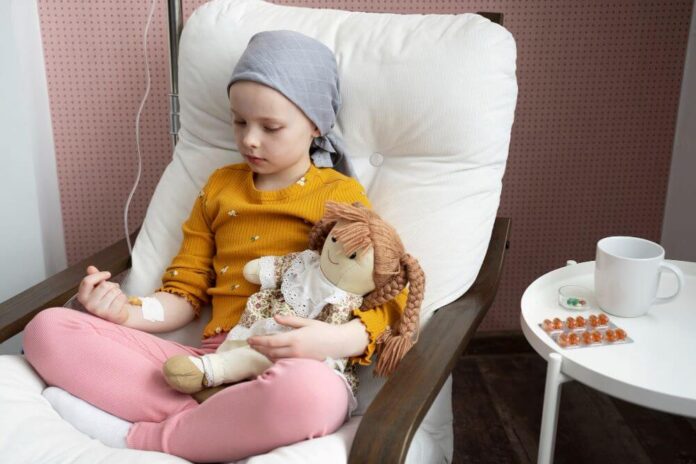In Canada, more than 1,700 children are diagnosed with cancer every year, according to Childhood Cancer Canada. While treatment advances are aways being made, cancer remains the leading cause of disease-related mortality in Canadian children over the age of one. Nonprofit organizations and advocacy groups are providing crucial support to affected families, funding research and running support groups and other services for which they often rely heavily on private donations.
Among those who have made funding this cause a big part of their lives is Vancouver business executive Lucas Birdsall. Birsdall has regularly donated to Childhood Cancer Canada, an organization founded in 1987 to assist pediatric oncology centers and research efforts while offering education and financial aid to families facing childhood cancer.
Birdsall, who has worked in client management, finance, and operational issues, says he was motivated to support the organization because he feels that young cancer patients and their families struggle with challenges that require a longer-term approach to support.
“I think it’s important to acknowledge that survival is not the full story,” Birdsall said. “A lot of the kids who survive this disease are left with chronic health problems. Organizations such as Childhood Cancer Canada also make sure they are not left behind after their initial treatment.”
Approximately 2 in 3 pediatric cancer survivors in Canada suffer from at least one chronic health condition as a result of their treatment, according to the Canadian Cancer Society. Late effects can include heart disease, secondary cancers, and cognitive deficits, causing survivors to be at higher risk for the rest of their lives.
Private contributions support most childhood cancer research in Canada because only a fraction of the overall funding for cancer is earmarked specifically for pediatric studies – about 7%, according to a recent report by Childhood Cancer Canada. This emphasizes the sector’s dependence on philanthropy.
Birdsall emphasizes that his involvement goes beyond financial contributions. He also advocates for more focused funding for childhood cancer research.
“A lot of times when people talk about cancer, they’re talking about generic cancer, and they forget how different it can be for kids. The treatments, the long-term consequences, the psychological effects, they’re very different battles. We need solutions that are tailored,” says Birdsall.
The need for public attention to the struggles of childhood cancer survivors remains a big hurdle. While survival rates for childhood cancers have risen dramatically over the last few decades, exceeding 80% for some types, the outcome can vary greatly depending on the diagnosis. Some types, like brain tumours and some rare leukemias, still have much lower survival rates.
Beyond survival rates, advocates stress the importance of quality of life. For the vast majority of families, the end of treatment is the beginning of yet another new difficult chapter, one filled with doctors’ appointments, learning deficiencies, and social reintegration challenges that are now part of everyday life. Childhood Cancer Canada’s programs, including scholarships for survivors and mental health support initiatives, target broader needs.
Birdsall believes that upgrading research and patient service support systems has the ability to raise survival rates, along with the quality of life for survivors and their families.
“Investing in childhood cancer research means opportunities for kids to live better, fuller lives,” stresses Birdsall.
Public outreach, philanthropic events, and collaboration between the medical community and nonprofit organizations are all considered crucial to keeping pediatric cancer research on track. In recent years, the effort has grown to focus on policy reform and ensuring justice for survivors as they age, including access to follow-up care and resources for transitioning from pediatric to adult healthcare services.
The role of the general community will continue to be vital as research progresses and survivor needs become more defined. In a time like this, people like Lucas Birdsall are essential parts of the effort to ensure that young Canadians diagnosed with cancer have every chance at a healthy future.







